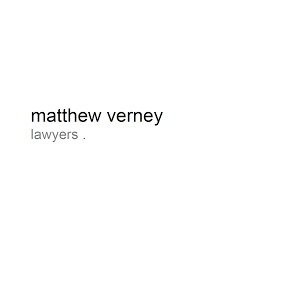Best Land Use & Zoning Lawyers in Devonport
Share your needs with us, get contacted by law firms.
Free. Takes 2 min.
Free Guide to Hiring a Real Estate Lawyer
List of the best lawyers in Devonport, Australia
About Land Use & Zoning Law in Devonport, Australia
Land use and zoning laws in Devonport, Australia, govern how pieces of land within the city can be used. They are put in place to protect the welfare and well-being of the community, ensuring that developments and endeavours are in line with regional planning and environmental policies. Regulations can differ based on areas, residential, commercial, or industrial zones, and may pertain to factors such as the type of infrastructure and activities allowed, building heights, noise levels, and more.
Why You May Need a Lawyer
You may need a lawyer to help with understanding and navigating the complexities of land use and zoning laws in Devonport. Situations where a lawyer could be beneficial include if you're looking to modify or apply for a zoning variation, if you face disputes regarding land use, or if you're contemplating purchasing property and you want to fully comprehend the land use allowances and restrictions. Professional legal guidance can help you avoid unintended infractions and potential penalties.
Local Laws Overview
Local laws relating to land use & zoning in Devonport are primarily guided by the Devonport Interim Planning Scheme 2013. This scheme establishes development standards and allowable land uses for different zone categories. It features regulations on residential, business, industrial, port and marine, utilities, and community purpose zones, among other speciality areas. Principles of sustainability, community welfare, natural and cultural heritage preservation are key guidelines in place.
Frequently Asked Questions
1. What is the meaning of zoning?
Zoning refers to the regulated districts or areas established by law, within which certain types of land use are permitted or prohibited.
2. Can I appeal if my zoning application is refused in Devonport?
Yes, if your zoning application is refused, you may appeal to the Resource Management and Planning Appeal Tribunal within the timeframe specified in your decision notice.
3. What is a discretionary use?
A discretionary use is a type of land use that is allowable under a planning scheme but requires the council's decision-making and public notification. The council then analyzes the impact and compatibility of the proposed use with the surrounding area.
4. Can zoning laws in Devonport change?
Yes, local governments periodically review zoning laws and they can change over time, usually to reflect the planning needs and sustainability goals of the city.
5. What are the penalties for violating land use & zoning laws?
Violating land use and zoning laws can result in penalties ranging from fines to court injunctions and can also lead to the demolition of unauthorized structures.
Additional Resources
You may find more information from the Devonport City Council which oversees the local planning and zoning regulations. Community legal centers and local law libraries can provide additional informational resources. Laws related to planning and land use can be found in the Tasmanian Consolidated Acts, available online.
Next Steps
If you require legal assistance in Land Use & Zoning in Devonport, contacting a lawyer specializing in this specific area of law should be your next step. They can provide advice tailored to your specific situation and help you ensure compliance with all relevant local laws and regulations.
Lawzana helps you find the best lawyers and law firms in Devonport through a curated and pre-screened list of qualified legal professionals. Our platform offers rankings and detailed profiles of attorneys and law firms, allowing you to compare based on practice areas, including Land Use & Zoning, experience, and client feedback.
Each profile includes a description of the firm's areas of practice, client reviews, team members and partners, year of establishment, spoken languages, office locations, contact information, social media presence, and any published articles or resources. Most firms on our platform speak English and are experienced in both local and international legal matters.
Get a quote from top-rated law firms in Devonport, Australia — quickly, securely, and without unnecessary hassle.
Disclaimer:
The information provided on this page is for general informational purposes only and does not constitute legal advice. While we strive to ensure the accuracy and relevance of the content, legal information may change over time, and interpretations of the law can vary. You should always consult with a qualified legal professional for advice specific to your situation.
We disclaim all liability for actions taken or not taken based on the content of this page. If you believe any information is incorrect or outdated, please contact us, and we will review and update it where appropriate.








